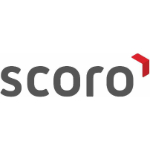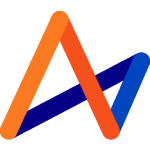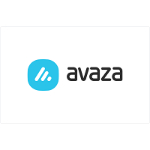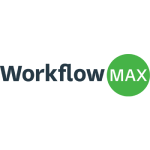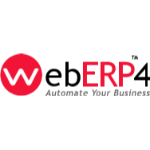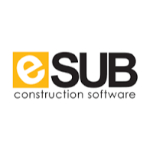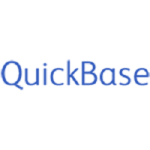List of Best Consultancy Software
Showing 10 of 17 productsAre you tired of juggling multiple tasks and struggling to manage your business efficiently? Look no further than Scoro. This user-friendly software simplifies your daily operations, from managing projects and tasks to organizing finances and trackin...Read Scoro Reviews
MavenLink is the powerful project management software designed to streamline collaboration and drive success. With its intuitive interface features, MavenLink empowers teams to easily manage tasks, resources, and timelines, all in one centralized pla...Read MavenLink Reviews
Accelo is a and versatile business management software designed to streamline and improve operations for companies of all sizes. With intuitive features and a user-friendly interface, Accelo allows businesses to stay organized, increase productivity,...Read Accelo Reviews
Avaza is a project management and collaboration tool designed to simplify your teams workflow and increase productivity. With its wide range of features interface, Avaza allows you to easily manage tasks, track time, and stay on top of project progre...Read Avaza Reviews
WorkflowMax, the all-in-one project management tool designed to streamline your business processes and boost productivity. With its intuitive interface and powerful features, WorkflowMax helps you efficiently manage your projects, timesheets, invoice...Read WorkflowMax Reviews
Monday.com is more than just a project management tool - its a dynamic platform that enhances productivity and collaboration within teams. With its user-friendly interface and customizable features, Monday.com streamlines processes and empowers indiv...Read Monday com Reviews
WebERP4, your all-in-one solution for managing your business operations. With its user-friendly interface features, WebERP4 allows you to streamline your processes and increase efficiency. From inventory management to financial reporting, WebERP4 has...Read WebERP4 Reviews
BigTime is a solution for managing your businesss time and resources. With its user-friendly interface and innovative features, BigTime streamlines project management, billing, and reporting in one efficient platform. Say goodbye to tedious tasks and...Read BigTime Reviews
ESUB is a software designed to streamline project management for construction companies. With simplified document tracking, efficient timekeeping, and seamless communication, ESUB enables construction teams to collaborate effectively and complete pro...Read ESUB Reviews
QuickBase BPM is an all-in-one business process management tool designed to streamline operations and maximize efficiency. With its intuitive interface and customizable features, QuickBase BPM empowers organizations to optimize workflows, automate ta...Read QuickBase BPM Reviews
- What Is Consultancy Software?
- Top Reasons Why Businesses Need Consultancy Software?
- What Are the Top Key Features of Consultancy Software?
- What Are the Top Benefits of Consultancy Software?
- What Are the Steps to Choose the Right Consultancy Software?
- What Are the Types of Consultancy Software for Different Industries?
- What Are the Technology Trends for Best Consultancy Software?
- What Are the Deployment Options for Consultancy Software?
What Is Consultancy Software?
Consultancy software is software that is used to manage a consultancy firm's activities. It is used to automate the day-to-day activities and tasks of running a consultant business, such as contact management, scheduling, invoicing, payments, and bookkeeping.
The purpose of consultancy software is to deliver a user-friendly experience customised to the specific needs of consulting organisations. It can be used to store customer information, projects, conversation logs, invoices, payments, and other information.
The consulting software includes a number of features that make it easier to manage consultations properly. It automates critical operations such as scheduling, billing, timesheets, and workflow management to ensure consulting services are delivered on time and efficiently. It can also be used to generate reports and analyze data in order to acquire a better understanding of how the business is operating.
Furthermore, many consulting software packages include features such as project collaboration, data security, document sharing, and others. These features facilitate client-consultant collaboration by allowing them to communicate easily and securely.
Finally, consulting tools is a vital instrument for running a profitable consultant business. It has features that help to streamline day-to-day processes, create reports and insights, and promote client-consultant cooperation.
Top Reasons Why Businesses Need Consultancy Software?
1. Increased process automation and optimisation: Consultancy software assists organisations in converting manual processes into digitally automated ones, resulting in increased efficiency and accuracy.
2. Improved analytics and reporting capabilities: Automated analytics and reporting assist decision-making by providing a greater understanding of customers, markets, resources, and other aspects.
3. Improved customer management: Consulting software can assist organizations in managing customer data, tracking consumer trends and preferences, and tracking customer loyalty.
4. Increased forecasting accuracy: Consulting management software can predict client behavior and preferences, market trends, and financial forecasting with greater precision.
5. Streamlined operations and processes: Automation enables firms to simplify processes, eliminate errors, and accelerate task completion.
6. Reduced costs: Consulting software can assist decrease labor costs, paper costs, and unnecessary processes, leading to significant cost savings.
7. Improved collaboration: Consultancy software can help teams share data, workflows, and target possible risks and opportunities by enabling internal and external collaboration.
8. Enhanced security: Automation and data encryption add an added degree of security to data, decreasing the possibility of human error and unauthorized use.
9. Scalable solutions: Consultancy software may be tailored to the needs of any size firm, allowing it to extend and expand as needed.
10. Centralised data management: All customer and resource data may be handled in a single location, providing for convenient access and centralized analysis.
11. Improved customer experience: Automated customer service processes can help firms give better service to their clients.
12. Improved compliance: Consulting management software can assist organizations in ensuring compliance with a variety of laws and regulations.
13. Better team management: Consulting tools can assist managers in tracking and monitoring team performance as well as customer feedback.
14. Improved training and onboarding: Automated onboarding methods can help new staff get up to speed quicker, saving time and resources.
15. Improved time management: Automation can help firms handle tasks more efficiently, lowering the time it takes to accomplish each task.
What Are the Top Key Features of Consultancy Software?
The top key features of consultancy software are:
1) Document Management: Document management enables consultants to securely produce, store, and manage documents.
2) Project Scheduling: This ensures that all project timelines are recorded and updated in one place.
3) Resource Planning: This module automates resource planning duties such as budgeting, workload management, and personnel tracking.
4) Task Management: Consulting tools aid in the creation, tracking, and execution of tasks in order to better time management.
5) Reporting & Analytics: Allows for quick access to reports and data analysis for in-depth insights.
6) Communication Tool: Allows all consultants to communicate with one another in real time via email, chat, and other means.
7) Client Management: Maintains client contact information, project briefs, and other data in order to streamline client interactions.
8) Financial Management: Automation and simplification of financial tasks such as invoicing, payments, and spending monitoring.
What Are the Top Benefits of Consultancy Software?
1. Improved Efficiency: Consultancy software allows consultants to manage work more efficiently, lowering the time it takes to complete projects.
2. Increased Organization: Consulting software enables consultants to store information in a centralized location, making it easier to access and manage projects.
3. Enhanced Productivity: By streamlining processes and automating certain operations, such as project management and payroll, consultants are able to focus on more critical responsibilities, resulting in increased productivity.
4. More Accurate Data Analysis: Consultancy software enables consultants to analyze data more quickly and accurately, providing them with a greater understanding of their clients' needs and challenges.
5. Enhanced Collaboration: Consulting software enables numerous stakeholders to work closely on projects, resulting in better results.
6. Improved Project Management: Consulting management software makes it easier for consultants to manage projects by tracking progress, setting deadlines, and tracking costs.
7. Streamlined Reporting: Consultancy software streamlines the process of developing and managing reports, allowing consultants to quickly access the data they require.
8. Improved Client satisfaction: Better project visibility helps consultants provide better, more timely feedback to their clients, resulting in increased customer happiness.
What Are the Steps to Choose the Right Consultancy Software?
1. Identify your business's needs: Spend some time outlining your company's goals, services, and client demands. This will assist you in determining which features and functionalities of a consultancy software to seek for.
2. Research different software options: Compare various consulting software solutions based on their individual functions, client reviews, and costs.
3. Evaluate each software option: Complete a thorough examination of each piece of software under consideration. Consider functionality, usability, security, customer service and support, and integrations.
4. Test the software: Once you've narrowed down your alternatives, it's critical to test each one to confirm that it meets your specific needs.
5. Choose the right software: Once you have performed all of the preceding processes, select the programme that best fits all of your business demands, both now and in the future.
What Are the Types of Consultancy Software for Different Industries?
There are four main types of consultancy software for different industries:
1. Business Process Management (BPM) Software: BPM software is used to design, monitor, and optimise business processes. It enables consultants and employers to manage existing processes by reviewing, refining, and deploying them in a methodical manner.
2. Database Software: Database consulting tools are used to store information such as client information, project information, financial information, and so on. It enables consultants to quickly access and analyze data in order to provide clients with relevant insights.
3. Data visualization software: The consulting management software provides many data visualization alternatives for gaining insights and making more efficient judgments. Consultants can convey complex data in an organized and intelligible manner by using charts and graphs.
4. Collaboration software: Collaboration software helps consultants to effortlessly exchange data and information with their clients by streamlining communication. It supports users in many places, allowing them to collaborate on initiatives such as market research.
What Are the Technology Trends for Best Consultancy Software?
Cloud computing, collaborative services, automation and analytics, artificial intelligence, data security, and mobile friendly platforms are among the technology developments for top consultancy software. Cloud computing allows for the efficient storage, access, and sharing of essential data from the cloud.
This allows consulting firms to stay competitive by keeping up with changing consumer needs. Web conferencing, project management, and virtual offices are examples of collaborative services that allow teams to collaborate from anywhere in the world.
Automation and analytics assist consulting firms in streamlining processes and making better decisions based on data. Artificial intelligence (AI) can help consulting professionals by speeding up mundane work and augmenting their talents.
Any consulting management software used by consulting businesses must ensure data security. All necessary security standards must be met by the programme, ensuring that client data is not compromised.
Finally, the best consultancy software should be mobile-friendly, so that consulting businesses can access the system from any location.
What Are the Deployment Options for Consultancy Software?
Consultancy software can be deployed in a variety of ways, each of which has its own advantages and drawbacks. Common deployment options include:
1. On-Premises Deployment: In this sort of deployment, the consultation software is physically installed on the organization's own PCs and servers. This solution provides the organisation with complete control over their data and application, but it is more expensive and requires more technical knowledge and setup time.
2. Cloud Hosted Deployment: In this sort of deployment, the consultancy software is hosted and managed by a cloud provider. Although this option may be less expensive than on-premise choices, organizations may have less control over their data and applications.
3. SaaS Deployment (Software as a Service): In this sort of deployment, the consulting software is managed by a third-party provider. Because the provider manages the application and data, this approach is frequently the simplest and most cost-effective for organizations; nevertheless, organizations may have less control over both the data and the program.
Each deployment strategy has advantages and disadvantages, which organizations should carefully evaluate before determining how to install consulting management software.
